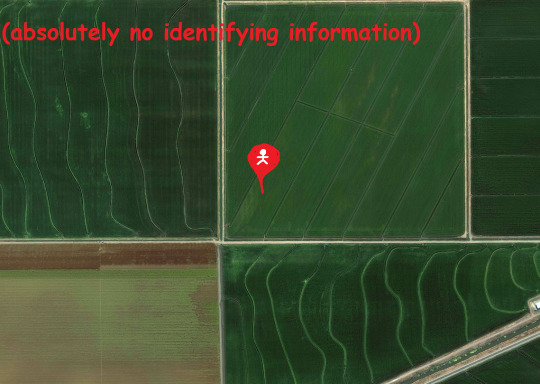#ip geolocation
Explore tagged Tumblr posts
Text
What Developers Need to Know About Using Get City by IP Tools

In today's data-driven world, developers need accurate tools to get city by IP to create personalized user experiences, improve security, and enhance analytics. DB-IP offers reliable IP geolocation services that help developers pinpoint a user's city based on their IP address. This functionality is essential for content localization, fraud prevention, and targeted marketing. With DB-IP’s powerful and easy-to-integrate APIs, developers can seamlessly access real-time geolocation data with high precision. Whether you're building a web app or managing large-scale platforms, understanding how to effectively use Get City By IP tools can greatly improve your application's functionality.
Read More:- https://www.fresnonewspost.com/what-developers-need-to-know-about-using-get-city-by-ip-tools
0 notes
Text
PHP IP Geolocation Api ile Detaylı Konum Bilgisi
Merhaba! Bu proje, IP Geolocation API'yi kullanarak IP adresine dayalı konum bilgilerini öğrenmenizi sağlar. Kullanıcıların IP adreslerinden, ülkelerine, şehirlerine, enlem ve boylam bilgilerine, ISP'lerine ve zaman dilimlerine kadar çeşitli verileri görüntülemenize olanak tanır.
Proje, sadece 2 dosya ile çalışacak şekilde basit ve hızlı bir çözüm sunuyor. index.php ve api.php dosyaları ile bu veriyi çekmek ve görselleştirmek çok kolay!
Özellikler:
Kullanıcıların IP adresine göre konum bilgisi alabilirsiniz.
Ülke, şehir, IP adresi, enlem, boylam gibi bilgileri kolayca görüntüleyebilirsiniz.
Zaman dilimi, ISP ve daha fazlası hakkında bilgi edinin.
Çok basit yapısı sayesinde hızlıca kurulabilir ve kullanılabilir.
Nasıl Kullanılır?
API Anahtarınızı Alın:
IP Geolocation API adresine kaydolun ve API anahtarınızı alın.
API Anahtarını Yapılandırın:
Proje dosyasındaki api.php dosyasına gidin ve aşağıdaki satırda bulunan API_ANAHTARINIZI_BURAYA_KOPYALAYIN kısmını aldığınız API anahtarı ile değiştirin.$apiKey = 'API_ANAHTARINIZI_BURAYA_KOPYALAYIN';
Projeyi Çalıştırın:
Dosyaları sunucunuza veya lokal makinanıza yükleyin.
Tarayıcınızda index.php dosyasını açarak IP adresi ve konum bilgilerini görüntüleyin.
Kullanılabilecek Teknolojiler:
PHP
cURL
JSON
Katkı Sağlama
Bu projeye katkıda bulunmak isterseniz, pull request gönderebilir veya issues bölümünden geribildirim bırakabilirsiniz.
License
Bu proje MIT License ile lisanslanmıştır.
Bu projeyi mscacan tarafından geliştirilmiştir. Eğer sorularınız veya önerileriniz varsa, lütfen bana GitHub üzerinden ulaşın.
0 notes
Link
Bulk GEO IP Locator - Find Geolocation Data for Multiple IPs
#ip checker#ip locator#geo ip#bulk IP addresses#Bulk GEO IP Locator#geolocation data#multiple IPs#IP lookup#geolocation tool#IP geolocation#IP address location
0 notes
Note
may i please send you my ip address
what the fuck no 😭
#asks#anon#the ‘joke’ surrounding sending people ur ip address/home address/whatever else is so fucking weird#like its not cute or funny 😭#oooh do u want my ip address? its not like this endangers my family or others who live near me#i’m an adult man i don’t want my minor followers and fans to even jokingly send me their ip#so god damn weird ur not quirky for spreading ur geolocation
3 notes
·
View notes
Text
Empowering Apps with IPstack Location Services API for Accurate Geolocation Data
In today's digital landscape, location-based services are at the forefront of enhancing user experiences and delivering valuable information. IPstack Location Services API, with its rich set of features, is a game-changer for developers seeking precise IP geolocation data and GPS coordinates. Let's dive into how this powerful tool can transform your applications.

IPstack Location Services API: This versatile API offers an easy and efficient way to obtain IP geolocation data. Whether you need GPS coordinates for tracking, location IP lookup for user personalization, or a free IP lookup API for cost-effective solutions, IPstack has you covered.
Accurate IP Geolocation Data: With IPstack, you can access highly accurate IP geolocation data. This means you can pinpoint a user's location down to the city or even the neighborhood, providing personalized content and services based on their geographical location.
Precise GPS Coordinates: For applications relying on GPS data, IPstack Location Services API delivers pinpoint-accurate GPS coordinates. Whether you're building a fitness app, a delivery tracking system, or a social networking platform, this level of accuracy is indispensable.
Location IP Lookup: Need to perform location IP lookup? IPstack's API simplifies the process. It allows you to identify the location of any IP address, making it ideal for security applications, targeted marketing, or compliance verification.
Free IP Lookup API: Budget-conscious developers will appreciate IPstack's free IP lookup API. It provides a cost-effective way to access essential IP geolocation data without compromising on accuracy. This option is perfect for startups and small businesses looking to optimize their location-based services.
API IP GeoLocation: If you're seeking a comprehensive solution for IP geolocation, IPstack is the answer. Its Location Services API offers seamless integration, enabling your application to harness the power of precise geolocation data. Whether you're building a weather app, a restaurant finder, or a travel planner, this API can take your project to the next level.
In conclusion
, IPstack Location Services API is a versatile and valuable tool for developers. It empowers applications with accurate IP geolocation data, GPS coordinates, and location IP lookup capabilities. Plus, with a free IP lookup API option, it caters to a wide range of needs and budgets. Embrace the power of geolocation and provide your users with personalized, location-based experiences by integrating IPstack into your projects. Elevate your apps today with IPstack Location Services API!
1 note
·
View note
Text
Unlocking Global Reach: Localizing Your React Native Mobile App with IP Geolocation API
As the world becomes increasingly interconnected, mobile app developers face a compelling challenge: reaching and engaging a diverse global audience. App localization stands as a potent strategy to meet this challenge head-on, significantly boosting user engagement and overall satisfaction. At the heart of effective app localization lies geolocation, the process of pinpointing a user's geographical location. This is where IP geolocation APIs come into play, with Ipstack serving as a prime example.
In this article, we'll embark on a journey to demystify the art of app localization using IP geolocation APIs within a React Native framework. By integrating these APIs, developers can offer personalized experiences to users worldwide. We'll start our journey by unraveling the fundamental concepts behind IP geolocation and how it seamlessly functions. Additionally, we'll navigate the critical considerations that guide the selection of an IP location API aligned with your app's unique demands.

Understanding IP Geolocation
Before diving into the practical implementation, let's grasp the essence of IP geolocation. At its core, IP geolocation is the process of determining a user's geographical location based on their IP address. This powerful technique enables apps to adapt their content, language, and functionality to cater to users from different regions.
IP geolocation typically provides valuable information such as the user's country, city, time zone, and sometimes even more granular details. By leveraging this data, you can create a tailored user experience that resonates with your global audience.
Choosing the Right IP Geolocation API
Selecting the appropriate IP geolocation API is a crucial first step in your localization journey. Here are some factors to consider:
Accuracy: Ensure the API provides accurate location data. Precision matters, especially when personalizing user experiences.
Coverage: Check if the API covers a wide range of countries and regions. You want to accommodate users from various locations.
Reliability: Look for an API with a reliable uptime and minimal downtime. Consistency is key in localization.
Ease of Integration: Opt for an API that offers straightforward integration with React Native. A well-documented API can save you time and headaches.
Pricing: Evaluate the pricing model of the API. Some APIs offer free tiers with limitations, while others require a subscription.
Once you've chosen the right IP geolocation API for your project, it's time to put theory into practice.
Practical Implementation
Setting Up Your React Native Project
Create a New React Native Project:Use the react-native-cli or Expo CLI to initiate a new React Native project. You can choose a blank template or one that suits your specific needs.
Install Dependencies:Depending on your chosen IP geolocation API, install the necessary packages for making HTTP requests. Popular choices include Axios and the built-in fetch API.
Integrating the IP Geolocation API

Get an API Key:Sign up for an account with your chosen IP geolocation service provider and obtain an API key. This key is essential for making requests to their service.
API Request:Implement the code to fetch the user's location data using the API key. This typically involves making an HTTP request to the provider's endpoint.
Parsing the Response:Extract the user's location information from the API response. Common data points include the user's country, city, and time zone.
Adapting Your App for Localization
Create Localization Resources:Prepare localization files for each language or region you want to support in your app. These files should contain translated text, localized images, and any other region-specific resources.
Localization Logic:Write logic in your React Native app that reads the user's location data and selects the appropriate localization resources based on that information. Libraries like react-native-localize can be helpful for this task.
Update User Interface:Use the localized resources to update your app's user interface. This includes displaying text in the user's language, using region-specific date and time formats, and adjusting layouts if necessary.
Testing and Debugging
Thoroughly test your localized app to ensure that all elements display correctly and that the user experience remains seamless. Be prepared to handle situations where the IP Geolocation API may fail to provide accurate data. Implement a fallback mechanism that allows users to manually select their preferred language and region within the app settings.
Conclusion
App localization is not just about translating text; it's about providing a tailored user experience that transcends linguistic and cultural barriers. By harnessing the power of IP geolocation APIs in React Native, you can automatically adapt your app's content and settings based on the user's geographical location. Follow the steps outlined in this guide, choose the right API, and embrace the potential to connect with users worldwide on a deeper level. With IP Geolocation, localization becomes a seamless and dynamic part of your mobile app strategy.
0 notes
Text
AO3 - re: the new update
Alright, so I've gone through the Privacy Policy to attempt to compile relevant information. Note, I am not a lawyer, and I'm not from the USA. I'm simply someone who decided to close read the Privacy Policy. This is not meant to tell anyone what they should or should not do, but instead help people to make an informed decision
1. Users outside the United States. Always be aware of local laws and changes to those laws. While it sometimes seems like the USA is the head-honcho, keep in mind that other countries might be working on similar items

2. Accessible information which can be gathered from fics you've written and notes you've left (perhaps even comments).


3. Go check the email that your account is connected to and make sure that its meaningless. I'd recommend even perhaps using an AO3 specific email, as opposed to a "[email protected]" that you also use on other sites.

4. I wasn't sure how accurate an IP address could be, so I turned to Google.
"Rest assured, it can't pinpoint your exact location or home address. However, it can determine the city or region where your device is located"
"Accuracy can vary depending on the location of the device and the provider. For example, IP-based geolocation services work better in big cities and less well in smaller ones. It can also be more difficult to find a precise location for a mobile device because they obtain new IP addresses as they move. "

5. AO3 knows what fics you've accessed.

6. AO3 may be legally compelled to share this information with law enforcement in the USA.

Now. Is there more in the Privacy Policy that I did not include? Yes, and I highly recommend that everyone goes and takes a good, close read of it. Is it the end times at this exact moment? No. But, taking necessary precautions (like checking your email address or only reading on a mobile phone) can never hurt.
But once again, I'm not a lawyer nor a law professional and you should always do your own research.
61 notes
·
View notes
Text

stranger things s4e6 the dive
the way i get *so* distracted when a computer comes on screen. computer-brain was already piqued when she's talking about ip addresses (both arpanet moved to tcp/ip and ipv4 started in 83, ok) and using it to determine the location (squint), and plain calling it the internet. was anyone saying internet yet in 1986? i don't know. data mining. geolocation software! (squint aggressively)
then i see this view and i was like, surely the ~1985 amiga was not using a cmd window and .bat files. that's msdos! but i don't know actually. so now i'm reading the amigados wikipedia page, have watched several people slowly boot 1.x versions of amiga workbench and someone who did briefly open a shell
oh my god this old amiga training video!



anyway confirmed it used forward slashes not back haha
then i'm like well. i wonder what programming language is back behind us here in that nina window. reading the comparison of programming languages syntax wikipedia page for semicolon terminated langs. ada???
so then i scroll back a bit earlier in the ep to see what else ended up on the screen and hello stdio.h in the comments lol

and then i try to go determine when stdio.h became a thing and oh my god STOP (unix version 7 1979???)
i do appreciate their effort. mostly.
5 notes
·
View notes
Text
I use various IP geolocation resources a lot for work. I feel like people know this by now but you really can't reliably track down a Person or even a single Address from an IP address. There's so many variables that can affect the address someone gets when they connect to the internet, and how accurate the location is. A person using mobile data fucks it up pretty frequently, because you basically have no idea which cell tower they're going to be hitting. And of course one's location can be purposefully obfuscated with use of a VPN. I remember reading an article a while ago, something generally about how some law enforcement agency kept harassing one person in Kansas because the exact geographic center of the US happens to be within their property, and sometimes if IP geolocation can't figure out anything specific, it just defaults to dead center. (link)
Anyway i'm posting about this because 1. bored and 2. just saw a ticket with an extremely helpful auto-generated map like this one (artist's rendition):

Ah yes. There. In the cornfield
7 notes
·
View notes
Text
The sensitive information in the leak includes the following:
IP addresses
Usernames
User agents (device type, OS, browser, version, configuration, etc.)
Messages (feedbacks)
Country
Geolocation (latitude and longitude with four decimal places, meaning a precision of approximately 11 meters (36 feet), which may be derived from IP)
Model names, genders, descriptions
Model statistics (upvotes, downvotes, views)
“Although the credentials were not leaked directly, hackers can associate the IP addresses with the identity from other leaks,” Kasiliauskis said.
The largest part of the leak, the “bangbros_straight” file, contains almost 11 million records. The records appear to be from a media or content management system and include various statistics.
The user login information in the log file included 496,542 records. The number of feedbacks tied to IP addresses, usernames, dates and other information was 37,974.
6 notes
·
View notes
Text
Ip Geolocation | Ip Address To Country Api | DB-IP

IP geolocation is essential for businesses seeking precise location data, and DB-IP provides accurate and reliable solutions. Our services help identify user locations, optimize content delivery, and enhance security measures. With our IP address to country API, developers can easily retrieve country-level data for any IP address, enabling seamless integration into applications and websites. DB-IP offers real-time geolocation insights, supporting businesses in fraud detection, compliance, and personalized user experiences with a powerful and up-to-date IP database.
0 notes
Text
I miss the days where you could just entirely lift someone's whole IP and geolocation from the tumblr ask they sent.
Those were truly glorious times.
#kizza speaks#i'm not even /jk for any new tumblrites btw#there were people who had this really easy install extension that would tell you someome's IP#and what city's data center the message came in from#so for example.if you got anon hate you could look at the stats and see ''oh huh this came from the Jersey center and the IP is XYZ? i know#exactly which other blogger i'm beefing with who also happens to live in Jersey just sent me this'x#the wildest times on here fr
3 notes
·
View notes
Text
im sorry i just BURST out laughing at the idea that leftists cannot contact their reps because "then they'll have my information and put me on a list" but then go on to swear TIKTOK is the the pinnacle of resistance organizing. You know, the short form video app that has their geolocation and IP address and where users will post multiple videos with their full government name and face???
2 notes
·
View notes
Text
Friendly reminder that SearXNG is currently the only way to get clean, private search results. Certainly not Google, not DDG, not Startpage, and not even Kagi. (Don't even get me started on Kagi...)
Most search engines use your geolocational data to customize results so that, for example, you Google "restaurants near me," and the search engine knows where you're located and provides results accordingly. The problem with this should be obvious. Search engines that customize results based on geolocational/IP data gradually become echo chambers for the default political climate wherever you're located, whether that be neoliberal/capitalist or flat out Nazi adjacent (like where I live).
I've tried everything, and SearXNG instances seem like the best. They're not quite as reliable as conventional search engines (due to being hosted by normal people), but they're so much better for privacy.
You can host your own instance, or you can try one of the many public instances.
2 notes
·
View notes
Text
Did you know that if someone traces your IP, they'll probably route you based on your Internet Service Provider?
I've tried to get an accurate reading of where I am based on my IP, just as a test, and I've gotten results as inaccurate as the other side of the fucking country.
Give it a shot. It's a crapshoot as to whether or not it's accurate in the slightest.
#my personal hypothesis is that this is dramatically worse for people in rural areas because we're often routed cross-country#this makes our internet way shittier but that's just a fact
7 notes
·
View notes
Text
The Future of Geolocation by IP Address: Trends and Innovations
Geolocation by IP address has come a long way since its inception, and it continues to evolve rapidly, shaping the digital landscape in profound ways. In this article, we'll delve into the latest trends and innovations in geolocation technology, highlighting how it is poised to impact various industries in the coming years.

1. Enhanced Precision with 5G
The rollout of 5G networks is poised to revolutionize geolocation accuracy. With its higher bandwidth and lower latency, 5G will enable more precise location tracking, particularly in urban environments. This technology will not only benefit navigation and logistics but also enhance augmented reality (AR) and virtual reality (VR) experiences, making them more immersive and location-aware.
2. IoT and Geofencing
The Internet of Things (IoT) is creating new opportunities for geolocation applications. Geofencing, a technique that establishes virtual boundaries around physical locations, is becoming increasingly popular. IoT devices equipped with geolocation capabilities can trigger actions or notifications when they enter or exit predefined areas. This is being used in logistics to track shipments, in smart homes for security and automation, and even in marketing to send location-based offers to consumers.
3. Indoor Geolocation
While GPS is effective outdoors, it falls short when it comes to indoor locations. Innovations in indoor geolocation technologies, such as Bluetooth beacons and ultra-wideband (UWB) technology, are addressing this limitation. Indoor geolocation is revolutionizing industries like retail, healthcare, and hospitality by enabling personalized experiences, asset tracking, and improved navigation within large buildings.
4. Geospatial Data Fusion
The integration of various data sources is enhancing the accuracy and utility of geolocation information. Combining GPS data with data from Wi-Fi networks, cell towers, and sensors allows for more reliable and precise location determination. This fusion of data is particularly valuable in urban environments with complex infrastructure.
5. Privacy-Preserving Geolocation
As concerns about privacy grow, there is a growing emphasis on privacy-preserving geolocation solutions. Techniques such as differential privacy and on-device processing are being employed to ensure that user location data remains confidential while still enabling valuable geolocation-based services. Striking the right balance between convenience and privacy will be crucial in the future of geolocation.
6. Geolocation in Healthcare

Geolocation technology is making significant inroads into the healthcare sector. Wearable devices with built-in geolocation capabilities can track patients' movements and vital signs in real-time, facilitating remote monitoring and emergency response. Additionally, geolocation can assist in contact tracing during pandemics, helping to curb the spread of infectious diseases.
7. Geolocation in Autonomous Vehicles
The automotive industry is leveraging geolocation technology to advance the development of autonomous vehicles. Precise and real-time geolocation data is critical for self-driving cars to navigate safely and efficiently. These vehicles rely on a combination of GPS, lidar, radar, and high-definition maps to make split-second decisions on the road.
8. Geolocation and Augmented Reality
Augmented reality (AR) is poised to benefit greatly from geolocation capabilities. AR apps can overlay digital information onto the physical world, and accurate geolocation data is crucial for aligning virtual objects with the real environment. This synergy is opening up new possibilities in gaming, tourism, education, and urban planning.
9. Climate and Environmental Monitoring
Geolocation API technology plays a pivotal role in climate and environmental monitoring. Satellites equipped with geolocation instruments provide valuable data for tracking changes in the Earth's climate, deforestation, and disaster management. Geolocation also aids in precision agriculture by enabling farmers to optimize resource usage based on location-specific data.
10. Geolocation in Smart Cities

Smart city initiatives are utilizing geolocation to improve urban planning and services. Real-time data from sensors and geolocation-enabled devices can optimize traffic management, waste collection, and energy usage. Additionally, geolocation can enhance public safety by enabling quicker emergency response and evacuation planning.
In conclusion, geolocation by IP address is on a trajectory of continuous growth and innovation. From the enhanced precision of 5G to the rise of indoor geolocation and privacy-preserving solutions, this technology is becoming increasingly integral to our digital lives. As geolocation continues to evolve, it will empower industries across the board, improving user experiences, enhancing safety and security, and contributing to a more connected and efficient world. Keeping an eye on these trends and innovations will be essential for businesses and individuals alike as we embrace the future of geolocation.
0 notes